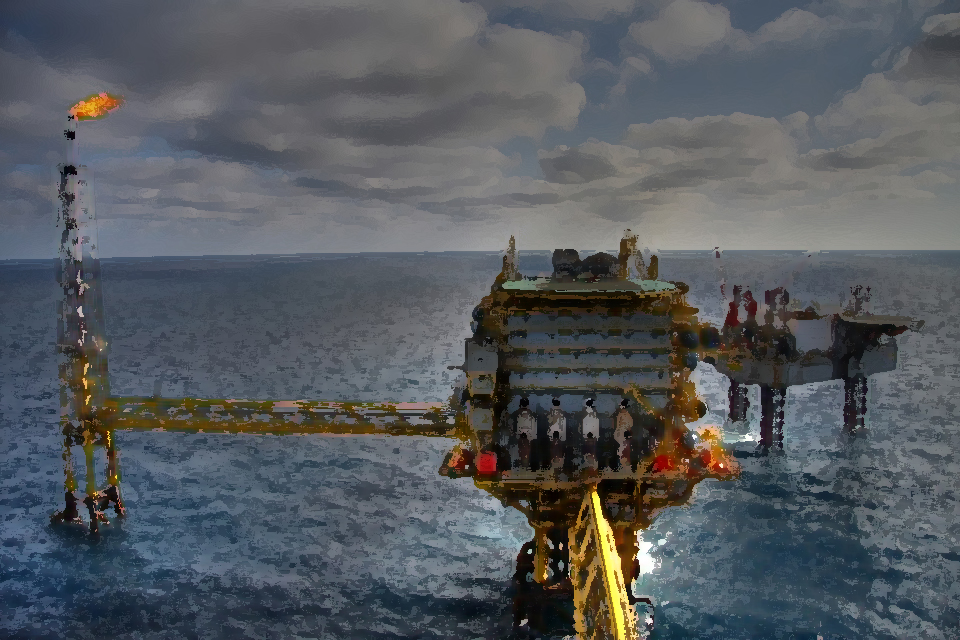This is a guest post by Chris Garrard, Co-Director of Culture Unstained, a campaign group raising awareness of fossil fuel company sponsorship of the arts.
Last week wasn’t the best week for the reputation of oil giant BP. Greenpeace activists blockaded BP’s head office in London, shareholders took the company to task at its AGM in Aberdeen and protestors vocally declared the meeting “a crime scene“ as they were roughly dragged out by security. And on Friday, the biggest climate strike yet took place with young people leading protests in more than 1,400 cities across some 110 countries.
But if you caught the news last Thursday, there was a very different story being told about BP, with the oil giant being celebrated as a champion of the arts – with the company paying £1 million for a series of “BP Galleries” to be named after the firm as part of a major redevelopment of the Aberdeen Art Gallery.
A Press Association news wire, picked up by ITV news as well as many local newspapers, described this as BP “ploughing” money into the new exhibition spaces. Others trumpeted this payment as a “£1 million boost” for the gallery.
Given the lavish language of the reporting, you would think this was some record-breaking act of philanthropy from the oil giant. If you took the time to read the articles though, it was clear this was not the case. ITV’s story explained that the redevelopment project “received £10 million from the National Lottery Heritage Fund and £10 million from the city council, while the campaign to secure the remaining £10 million has so far raised £4.8 million.”
So, while one third of the project’s budget is coming from a public body (the Lottery Heritage fund) and a third coming from taxpayers via the city council, it was BP’s payment of just 1/30th of the overall budget that was reported as the boost deserving of public celebration.
As is often the case when BP makes payments to major arts institutions, it makes sure to get ‘naming rights’ to help boost its brand: from “BP Big Screens” at the Royal Opera House to “BP Exhibitions” at the British Museum. It’s no surprise then that the National Portrait Gallery’s “BP Portrait Award” – which will be announced in just a few weeks’ time – will “return to the Aberdeen Art Gallery in 2020, as part of this new funding agreement”.
BP is making sure it gets bang for its buck with this new deal.
And there’s more to the partial picture of BP sponsorship reported last week. Aberdeen City Councillor Stephen Flynn said at the time that the payment from BP to the gallery “is most welcome and they must be thanked for their generosity”, and Aberdeen’s Lord Provost echoed this, suggesting that BP’s money “means that a new generation of visitors will experience and engage with exhibitions”.
But should BP really be thanked for its apparent “generosity” and as a company providing access to the arts?
While the government has significantly cut funding to the cultural sector, it has continued to make massive handouts to the fossil fuel industry. In the 2015/16 tax year, when BP gave £2 million to a handful of London-based arts institutions, the British government gave a net £200 million to BP, as government subsidies far exceeded the total taxes paid by BP. As the organisation Oil Change International noted at the time:
“Whereas North Sea oil used to be a source of revenue for the Treasury, today subsidies have become so extreme that the government actually pays BP to extract oil.”
And that brings us back to Aberdeen, a Scottish city which remains a hub for North Sea oil and gas extraction, where BP’s AGM had taken place just 48 hours before the sponsorship deal was announced.
But when the news of the partnership with the Gallery emerged, reference to the AGM was absent. The long-running campaign against BP’s sponsorship of the British Museum and Royal Shakespeare Company also went unmentioned. Reports highlighted how Aberdeen’s Art Gallery will open a set of “BP Galleries” but failed to note how Tate had removed its “BP walk through British Art” just a few years ago, following a campaign of creative protest against its oil sponsorship deal.
This new arts sponsorship isn’t a burst of sudden generosity from BP – sponsoring culture is a cheap and effective way for the company to buy back some much-needed social legitimacy. After shareholders took BP to task at its AGM and activists blockaded its head office, the promotion of this sponsorship deal was an all-too-convenient way to invest in some damage limitation – using greenwash to cover the inconvenient fact that the company is investing billions in new oil and gas projects while the climate crisis mounts.
Image credit: Pixabay
Subscribe to our newsletter
Stay up to date with DeSmog news and alerts






